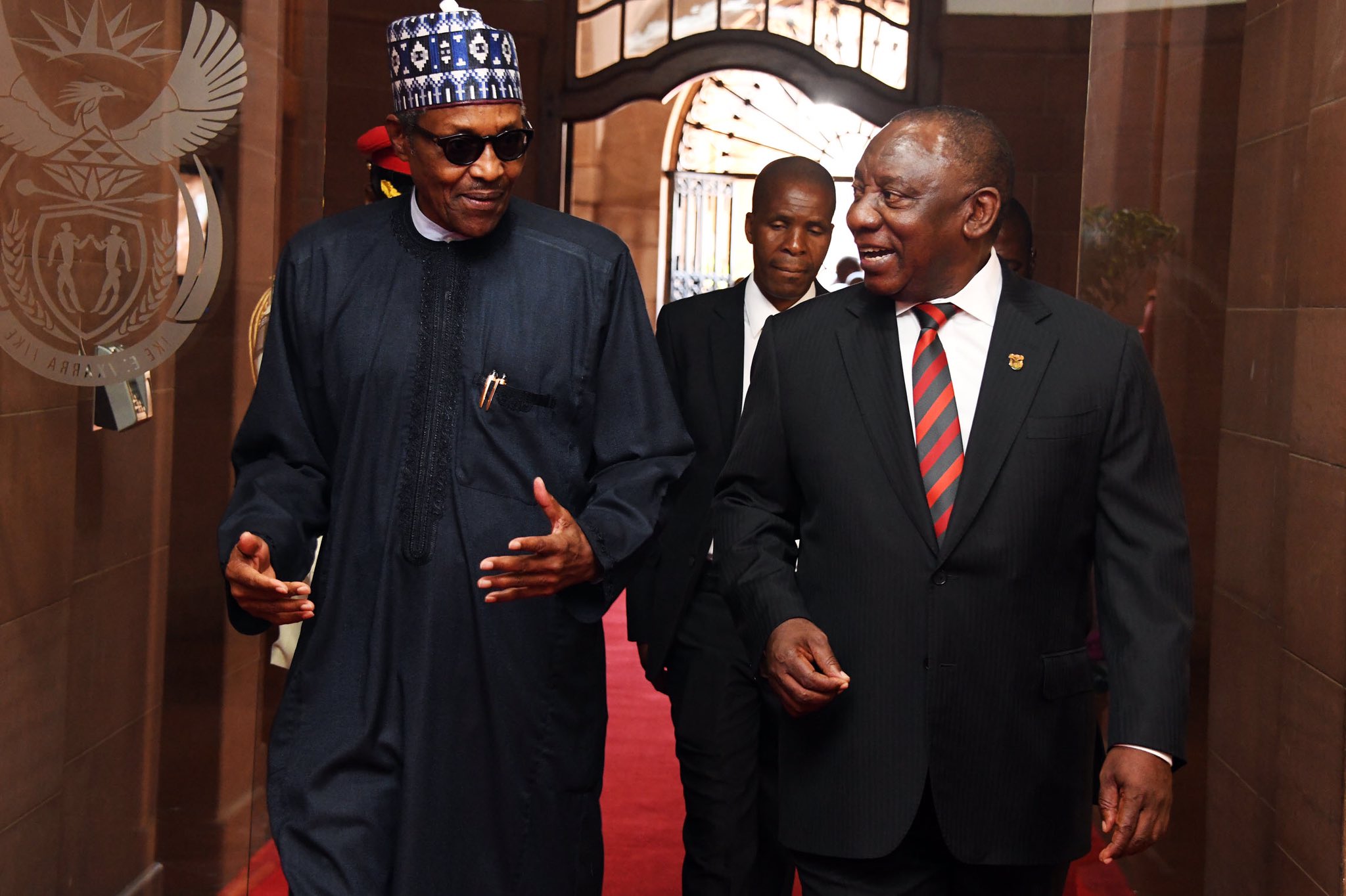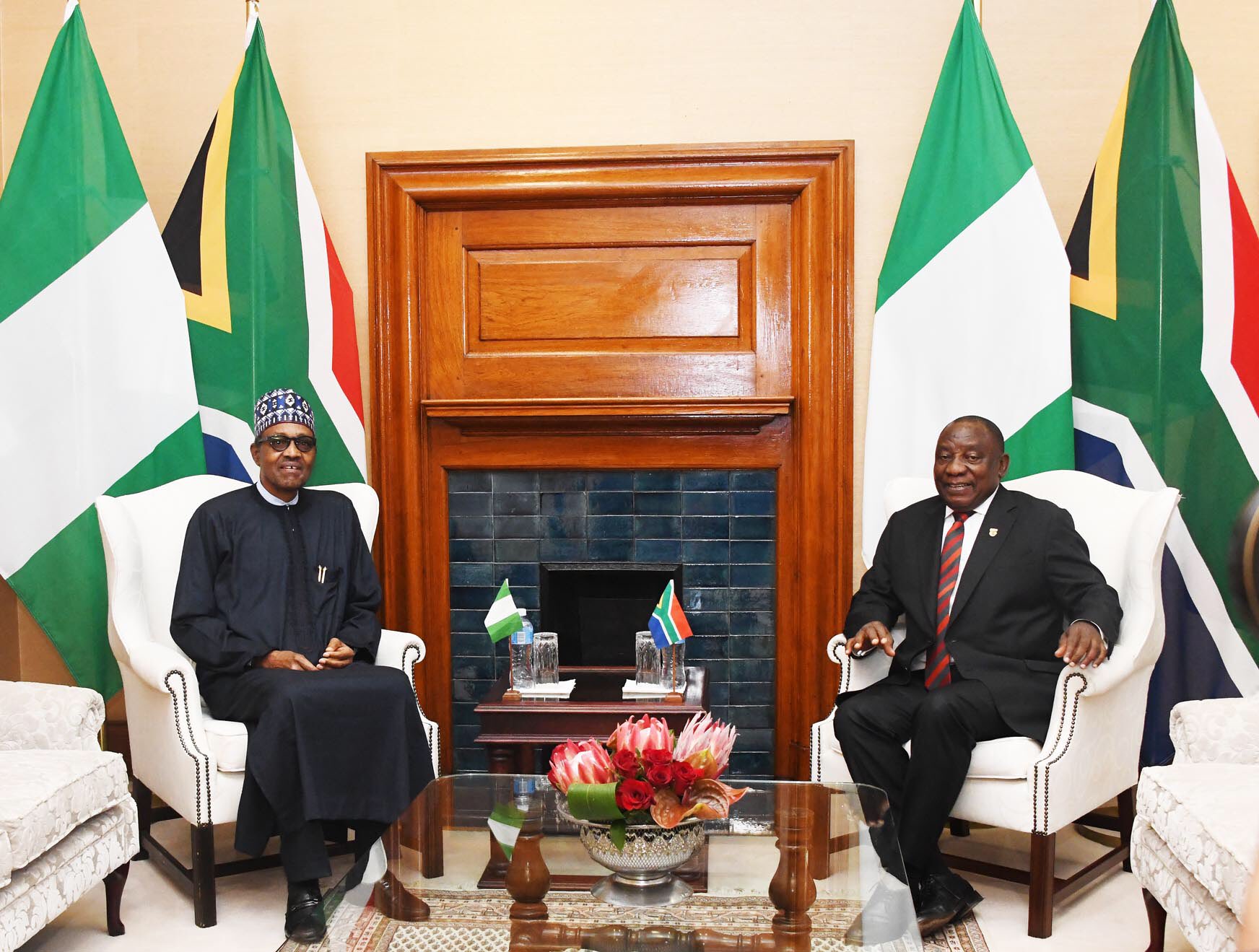Riyaz Patel
President Cyril Ramaphosa told the South Africa-Nigeria Business Forum that the two largest economies on the continent have a unique role to play in driving integration across Africa.
“Our existing regional value chains can be integrated by deepening our bilateral relationships,” Ramaphosa said the business dialogue which forms part of Nigerian President Muhammadu Buhari’s state visit to South Africa.
He then flashed out the stats, saying over 100 South African companies have investments in Nigeria, and over 1700 South African firms had active trade relations with the west African powerhouse.
Ramaphosa added that South Africa is by far the largest purchaser of Nigerian products in Africa, “accounting for nearly half of Nigeria’s exports to the rest of Africa in 2018.”

Ramaphosa said the two countries had sealed 32 bilateral agreements and memoranda of understanding covering trade and industry, science and technology, defence, agriculture and energy.
Nigeria accounts for 64 percent of South Africa’s total trade with the West African Region and is one of its largest trading partners on the continent.
“The depth of this trade and investment relationship makes Nigeria a key partner for South Africa, and is a sign of our commitment to support President Buhari’s Economic Recovery and Growth Plan.”
President Ramaphosa said trade relations between Pretoria and Abuja needed to be transformed to be one of greater value-addition with a greater focus on manufactured and agricultural goods.
He added that crude oil still dominates trade between the two counties, despite the sophisticated respective consumer markets and manufacturing sectors.

Ramaphosa said the two Governments remain committed to create a climate that will make it easier for South African companies to operate in Nigeria, and for Nigerian firms to operate down south.
The African Development Bank estimates that Africa needs to spend between $130bn and $170bn a year to meet the continent’s infrastructure needs. That spending will connect the continent through new road, rail and port infrastructure and, crucially, through broadband.
This infrastructure spend will unlock a number of growth opportunities for African manufacturers, construction companies and services firms, said Ramaphosa, but cautioned that if only a “few large countries benefit from integration, the long-term prospects for sustainable integration are dim.”
“We must assure that all African states, big and small, benefit from the African Continental Free Trade Area (ACTFA).”
This, Ramaphosa added, will only be achieved by “allowing flexibility in the implementation of the agreement by smaller countries,” and by developing a regional industrial vision that “recognises each country’s unique capabilities and fairly shares production.”
Ramaphosa also announced that South Africa and Nigeria have been working together on the establishment of a Sub-Saharan African Automotive Development Plan, which recognises the important role the automotive sector can play in promoting industrial development.
South African and Nigerian firms need to collaborate in the production of key components and work jointly on major development projects, and “position our countries to take advantage of new opportunities in a rapidly evolving energy market,” said South Africa’s president.

Ramaphosa pointed out that the potential of such partnerships is borne out by Transnet’s role in ‘Nigeria’s Narrow Gauge Rail Project.’
The venture aims to improves narrow gauge railway services in Nigeria and provide efficient and reliable transport services. Transnet has agreed to manufacture, supply and maintain 200 wagons and refurbish and supply 10 locomotives for the first phase of the project.
And while Ramaphosa was trumpeting the promise offered by an enhanced trade relationship between South Africa and Nigeria, he emphasized that the “ideal of shared prosperity will only be realised through a united Africa realising its development potential and righting the injustices of our troubled past.”
“It is the promise of an Africa committed to openness and ready to take our place as a key driver of global growth and innovation.”
